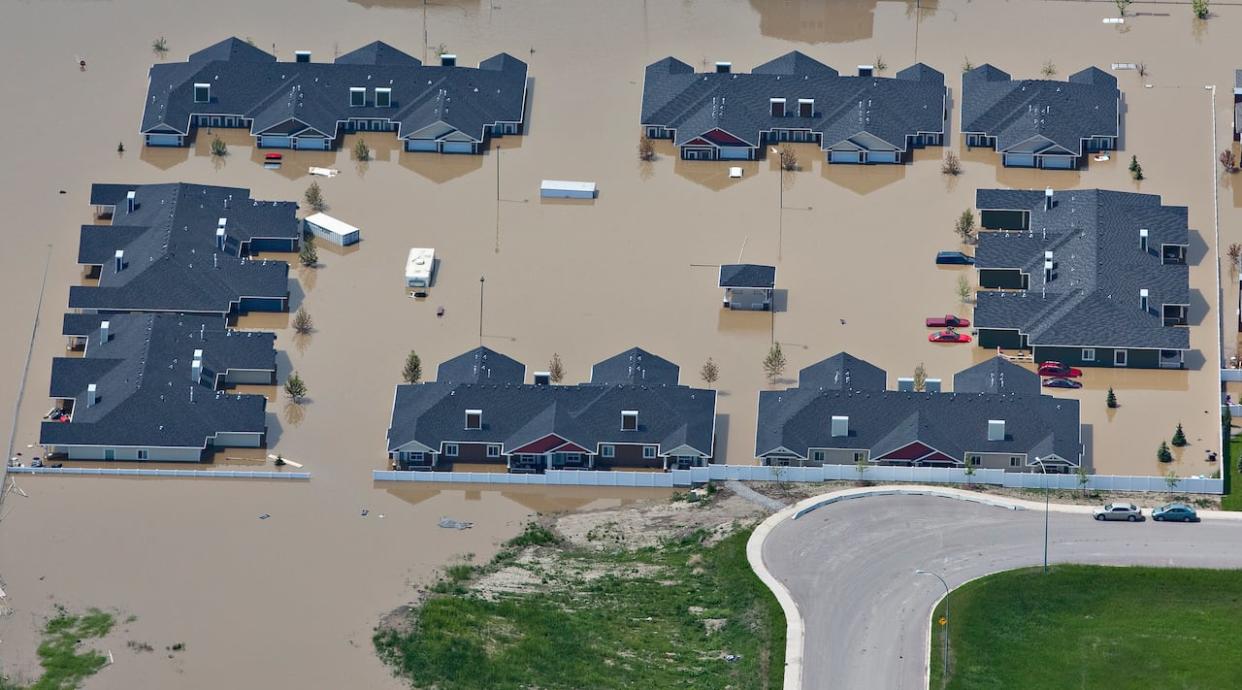Extreme weather causing billions of dollars in damage, driving up insurance premiums: StatsCan

The increasing frequency of extreme weather events across the country has caused the sums paid out annually for catastrophic insurance claims to explode — and annual payouts for the last four years now rank among the ten largest on record, says a new Statistics Canada study.
"Homeowners have been particularly affected by extreme weather claims, with recent hurricanes, floods and unprecedented wildfires," says the report, released Wednesday.
"Insured claims costs were $3.4 billion in 2022 and $3.1 billion in 2023, each more than 50 per cent above the yearly average."
The report says that between 1983 — the first year catastrophic insurance claims were tracked — and 2008, insurers paid out an average of $400 million per year. From 2009 to 2023, that yearly average rose to almost $2 billion.
"These 'once in 100 years' events are happening more frequently and are becoming more severe and more costly," the report says.
The report also says that for almost the entire period from the beginning of 2020 to the end of 2023, homeowner insurance premiums in Canada increased at a rate higher than inflation.
Despite those higher payments, Statistics Canada says insurance companies' "profitability has not wavered significantly and is consistent with historical trends."
The report says that returns on equity for the insurance industry ranged from 5.6 per cent at the beginning of 2020 to 25.7 per cent by the end of that year. In 2023, returns dropped down to near the "long run average" of 10.1 per cent, the report says.
"At the end of the day, insurers are remaining viable only because premiums have gone up," Craig Stewart, vice-president of climate change and federal issues at the Insurance Bureau of Canada (IBC), told CBC News.
"What it means is that homeowners are now, on top of everything else, feeling the pinch because of the severe weather events that we are seeing."
The Statistics Canada study focuses on personal property insurance, which the report describes as "synonymous with homeowners insurance."
It says that despite the increasing intensity of wildfires in Canada,"flooding caused by heavy rainfall, hail and hurricanes remains most detrimental to homeowners, most significantly impacting the coastal regions of Canada."
The report says other factors have combined to drive up the cost of insurance premiums, including labour shortages, the pandemic and increased replacement costs.
The report says that because insurance companies are responsible for rebuilding houses under current market conditions, they are subject to spikes in the cost of building materials.
In September of 2021, the year-over-year increase in replacement costs (lumber, wire, concrete, construction wages and household items) hit 14.4 per cent, just as overall inflation sat at 4.4 per cent.
Former federal environment minister Jonathan Wilkinson's 2021 mandate letter directed him to "invest in reducing the impact of climate-related disasters, like floods and wildfires, to make communities safer and more resilient."
Stewart said that since then, not enough has been done to ensure homes and other properties are able to withstand the impacts of extreme weather events caused by climate change.
He said the fight against the impacts of climate change has to be about more than energy efficiency and emissions reductions.
"The greener homes program where they keep putting money into heat pumps, which is fine, but there should be funding available for folks that want to make their homes flood and wildfire proof," Stewart said.
CBC News reached out the federal government for comment but has not yet received a response.

